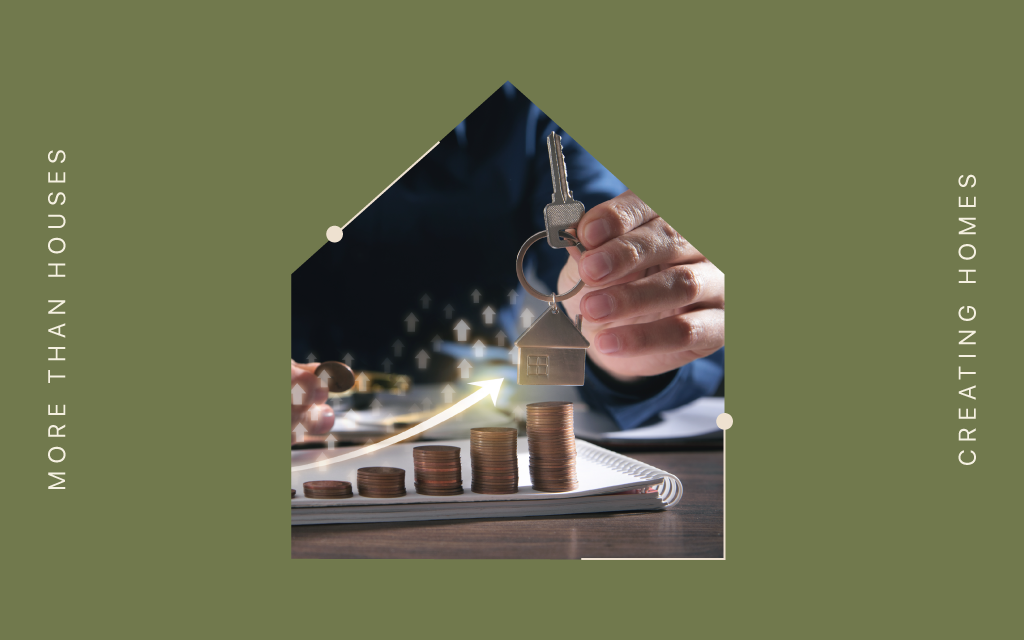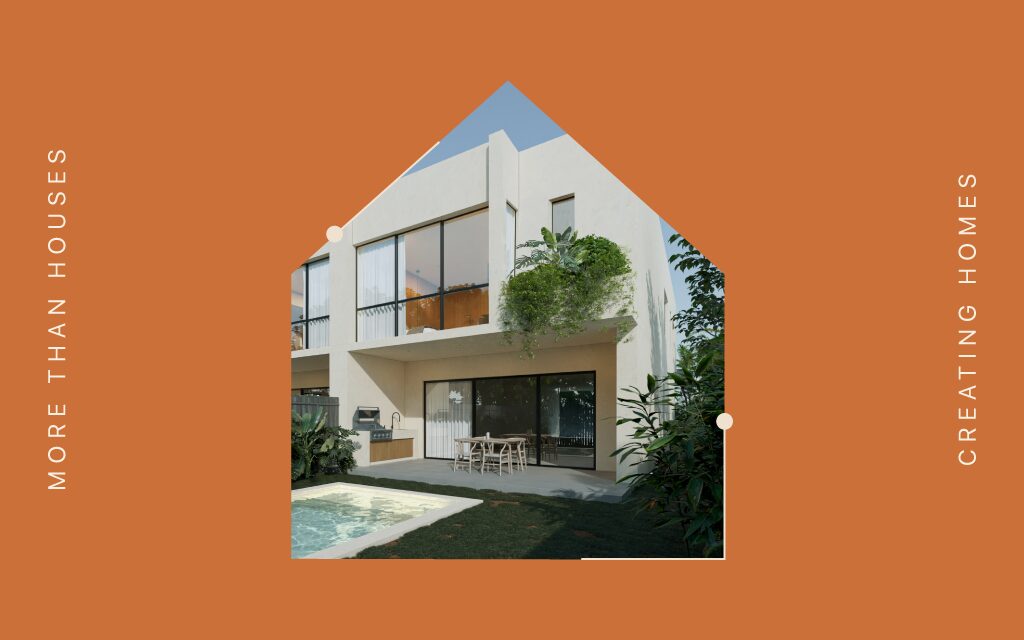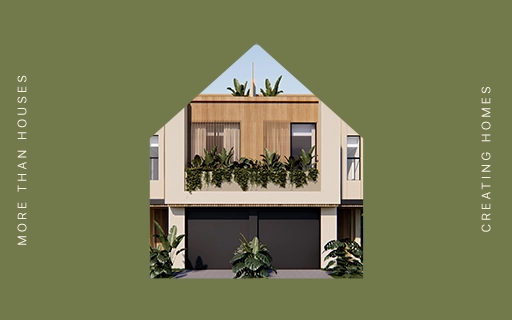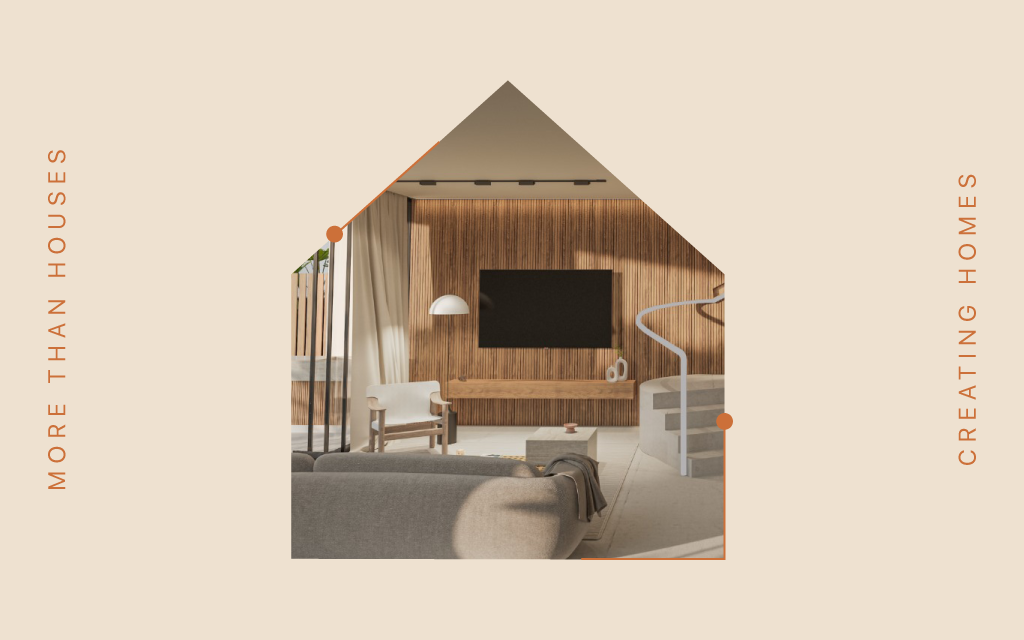Buying a home in Florida is an exciting, personal step that comes with a variety of questions and queries. One of the first and most important concerns that pops in our clients minds is, “How much down payment do I need?” It’s a fair question that doesn’t always have a one-size-fits-all answer.
With a solid experience designing and developing residential communities across the Sunshine State, we’re here to guide you through what you really need to know.
Here, we’ll clear up the basics so you can approach the process with confidence and clarity, with all there is to know about making a down payment.
What Is a Down Payment?
It is the upfront percentage of the purchase price for your home. You pay this amount at closing when you buy a home and pay off your mortgage for the remainder of the purchase price, plus any interest. This percentage is considered your personal investment, and it reduces your total borrowing amount from the lender. For example, on a $400,000 home, a 5% down payment would be $20,000, resulting in a $380,000 mortgage balance. You might want to try our mortgage calculator to see how the numbers play out for you.
Lenders view down payments as an indicator of financial health and as a means of lowering their risk. That way, what you actually pay is usually based on a percentage of the home’s price, meaning that you’re in a position to buy a house of a certain value if you can pay a percentage of between 3%, 10%, or 20% of the total price in advance (even more if possible).
Where does the down payment money usually come from? We’ve seen buyers fund this money from savings, the sale of another home, or even gifts from family. Some take advantage of state or county assistance programs. Whatever your path, this first investment you make signals to a lender that you’re financially committed and gives you a head start on building equity from day one. And the more you put down, the less you borrow, which can translate into lower monthly payments and potentially better loan terms.
At DCR Homes, we walk our clients through realistic budgeting so down payments are not perceived like obstacles but rather a stepping-stone toward homeownership.
You may be interested in: Smart Ways to Save for Your Dream Home Down Payment
20% Down Payment: Myth or Real Standard?
You’ve probably heard you “need” 20% down to buy a home and this is because, for decades, the “standard” down payment has been quoted as such. While putting 20% down has clear benefits, like avoiding private mortgage insurance (PMI) on conventional loans, the truth is that this is no longer a requirement for most homebuyers.
Today, many lenders offer far more flexibility, providing options with significantly lower minimum down payments. For example, some conventional loans need as little as 3% down from qualified buyers. FHA loans start at 3.5%, and VA and USDA loans can be 0% down if you meet eligibility requirements. This means that for many Floridians, the dream of owning a home is closer than they imagined.
So, if a 20% sum works for you, wonderful. But if a smaller portion is a better fit for your family’s current stage, it’s ok too. It’s really a myth that you “must” have that much cash on hand to buy a house.
What Is the Median Down Payment on a House in the U.S.?
Looking at national trends helps put things in perspective. According to the National Association of Realtors, the typical down payment for first-time buyers in the U.S. is around 9%. For repeat buyers, the median is closer to 18%.
These numbers tell us two important things:
- Most Americans are not putting 20% down, especially first-time buyers.
- Lower down payments have become a normal part of today’s housing market.
Florida mirrors these national trends. In our communities around South Miami and Florida City, we routinely see buyers purchasing with less than 10% down, then building equity as they go. We crunched the typical numbers below:
Given that in July 2025 the median house price in Florida is $410,000, these are the usual percentages:
- 3% down: $12,300
- 10% down: $41,000
- 20% down: $82,000
Minimum Percentage Requirements for Different Mortgage Types
As we stated before, the minimum amount you’ll need depends on the total cost of the home, but also on the type of mortgage you get. Not all mortgages are alike, since the requirements range from no down payment required at all, to 10% or even more. Below is a rundown on common types of loans and their minimums:
FHA Loans
FHA loans are loans guaranteed by the Federal Housing Administration. FHA loans are popular with first-time buyers because they are less stringent on credit. The minimum is 3.5% for borrowers with a credit score of 580 or higher.
FHA Loans
FHA loans are backed by the Federal Housing Administration and are popular among first-time buyers because of their more flexible credit requirements. The minimum down payment is 3.5% for borrowers with a credit score of 580 or higher.
If your score is below that number, you may still qualify, but you’ll need to put down a bigger percentage.
VA Loans
These are VA loans guaranteed and for purchase of veterans, active duty military, and certain surviving spouses. They have no down payments and typically no PMI.
USDA Loans
The United States Department of Agriculture even offers loans to moderate-income buyers in select rural and suburban areas, in order to promote homeownership in such places. Like VA loans, USDA are available with 0% down for qualifying homebuyers. It does involve income and place requirements, so it’s best to check if your focus Florida community qualifies.
Jumbo Loans
Jumbo loans are often used for luxury or high-cost homes. Because of the greater amounts, lenders will often require larger down payments, at least a 10%, but more frequently a 15%-20%. The person borrower in this category will also need good credit and assets in order to qualify.

Down Payment in Florida: How Much Do You Need? (Our Own Suggestion)
Florida boasts a highly diverse housing market. As we mentioned above, median home prices in 2025 are around $410,000, but you’ll pay more along the coasts and less inland. Here’s how different down payment amounts look on a $410,000 home:
- 3% down (Conventional): $12,300
- 3.5% down (FHA): $14,350
- 10% down (Conventional): $41,000
- 20% down (Conventional): $82,000
We at DCR Homes encourage prospective buyers to consider more than just the numbers. The down payment is the first step towards being a homeowner, not an obstacle. Your lifestyle aspirations, financial cushion and income stability will all drive the amount that is reasonable for you.
If you are a first-time buyer in Florida, it is ok to go with a lower down payment, especially if utilizing an FHA or a 3% conventional loan. However, you will see lower monthly payments and possibly some better terms if you can invest 10% or more.
We see it with our clients: some do smaller down payments to get into a neighborhood they love, then refinance after they’ve built up equity. Others prefer to save longer and come in with 15%–20% down to keep monthly costs low.
We always advise buyers to look at their entire financial picture when making a decision. Take into account your retirement savings, emergency fund, and future expenses. A down payment should help you get the home you want without compromising your financial health, not just the closing table.
Does my credit score affect my down payment?
Yes, indirectly. The higher credit score can qualify you for lower down payment programs and better interest rates. For example, conventional lenders tend to reserve their most beneficial programs for borrowers with good credit histories.
Can I buy a home with no down payment?
It’s available, but only under specialized programs, for example VA and USDA loans. No down-payment home loans are also offered by some local credit unions and commercial lenders in special situations.
Are there any down payment assistance programs available in Florida?
Yes, the Florida Housing Finance Corporation manages programs, for example, the Florida Assist which provides interest-free second mortgages up to $10,000. This renders homeownership less expensive for first-time buyers who need a boost.
If you’re prepared to discover your opportunities, we would love to walk alongside you. Together, we will find a home where your Florida journey can actually begin.




